After 20 years, Pacific Park faces foreclosure and an uncertain future
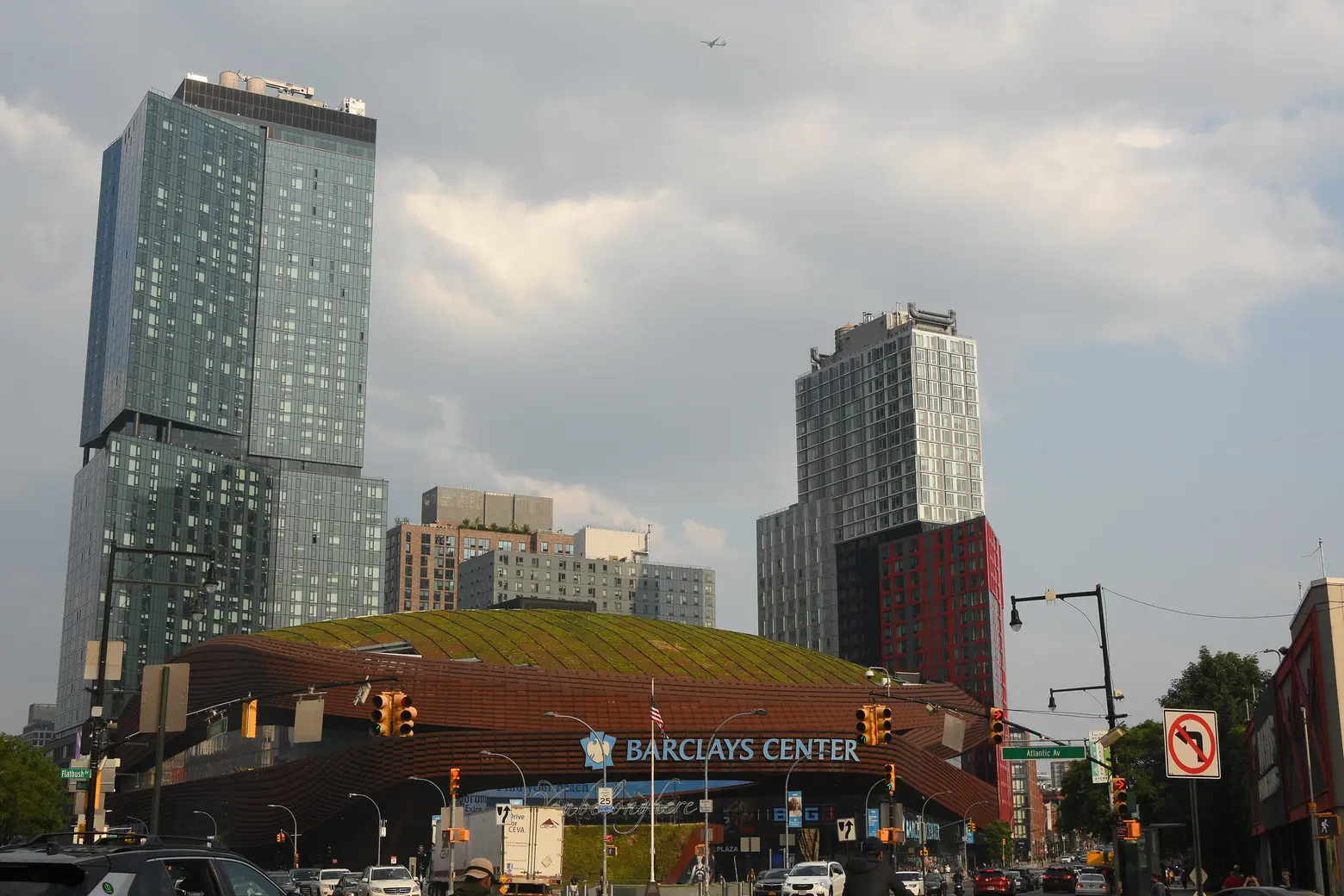
Photo credit: Amaury Laporte via Flickr.
As the massive Brooklyn megadevelopment once known as Atlantic Yards reaches its 20th anniversary, news of the project’s progress has been scarce. But recent changes affecting the development anchored by Barclays Center may put the 22-acre site–now known as Pacific Park–back in the spotlight. As The Real Deal reported in a wrap-up of its progress over the past two decades, current developer Greenland USA has defaulted on nearly $350 million in loans attached to the project’s second phase. With foreclosure imminent, an auction, scheduled for next month, may mean a new developer will be responsible for fulfilling crucial affordable housing agreements and inherit penalties for unbuilt units.
According to The Real Deal, Greenland USA, part of China’s state-owned Greenland Group, which owns a 95 percent stake in the project, defaulted on loans tied to its remaining six unbuilt sites–more than 3,200 rental apartments. The U.S. Immigration Fund, which had assembled the loans through its foreign investor program, intends to foreclose on the sites, with an auction slated for January 11, 2024.
Launched with much fanfare and controversy in 2003, helmed at the time by developer Forest City Ratner, the (then) $2.5 billion megaproject was to include a new stadium that would be home to the former New Jersey Nets and 15 residential and office buildings, the highlight of which would be a glassy supertall designed by Frank Gehry. At the project’s center, a platform would be built above the MTA’s Atlantic Yards railyard at the nexus of Pacific Street and Atlantic, Carlton, and Vanderbilt Avenues.
At present, nine of the planned 15 buildings have risen. The Gehry tower, dubbed “Miss Brooklyn,” never happened, though the celebrated stadium–and the Nets, which Ratner purchased and later sold to Russian billionaire Mikhail Prokhorov–have become part of Brooklyn’s colorful urban fabric. (The team is now owned by Joe Tsai, chairman of the Chinese multinational technology company Alibaba Group.).
The project has been plagued with challenges from its earliest days. Legal actions taken by residents and property owners displaced by the developers’ eminent domain agreement with the state delayed work for years; a planned modular residential tower hit snags; the 2008 financial crisis dealt another blow, as did the Covid pandemic.
Post-pandemic prices affecting the cost of building the rail yard platform have been an additional challenge. The Real Deal notes Greenland reached a tentative deal with the MTA in August covering the platform’s first phase, consisting of three residential towers.
A recent setback that may significantly affect the project’s next chapter is the expiration in 2022 of the 421a property tax break. Greenland stated that without the tax break, it could not build the new units.
A 2014 agreement between Greenland and the city mandated 876 additional affordable rental apartments (part of the project’s 2,250 affordable units) to be completed by 2025. The developer would incur a $2,000-a-month penalty for each unbuilt unit, which could add up to $21 million a year across all units if the deadline isn’t met.
Atlantic Yards Report raises some important issues that may determine the future of phase two. Will the 2025 affordable housing deadline become a new developer’s responsibility? What about the $11 million annually owed to the MTA for the right to build over the rail yards?
According to The Real Deal, Empire State Development (ESD), the state authority overseeing Atlantic Yards/Pacific Park, would not provide information on conditions that may come with the upcoming auction of the six development sites. It’s difficult to imagine a potential bidder would sign on without knowing whether they’ll be assuming those significant obligations. Critics fear that if the Hochul administration’s Empire State Development waives the penalties to make the project easier to salvage, a precedent will be set that encourages developers to abandon agreements.
The Brooklyn Eagle summarizes the news by quoting community advocates, who say developers have not been sufficiently held accountable from the outset. Michelle De La Uz, executive director of the Fifth Avenue Committee, is quoted as saying the existing affordable housing at Pacific Park is “not affordable enough.”
Assembly Member Jo Anne Simon tells the Eagle: “Twenty years ago, the public was promised a ‘Garden of Eden’ above ‘blighted’ rail yards. ESD green-lit the risky project, took private property through eminent domain and now–during an historic housing crisis–the public is left without promised affordable housing and nothing above the rail yards. In the wake of the developer’s default, I have no confidence that damages owed for missed deadlines will ever be paid.”
RELATED:
- Two-tower Prospect Heights rental with huge public park launches lottery, from $2,290/month
- New renderings show 72,600-square-foot public park coming to Brooklyn’s Pacific Park development
- Pacific Park construction accelerates with groundbreaking at tallest tower
- 258 middle-income units up for grabs at Brooklyn’s Pacific Park complex, from $1,905/month
Get Insider Updates with Our Newsletter!
Leave a reply
Your email address will not be published.


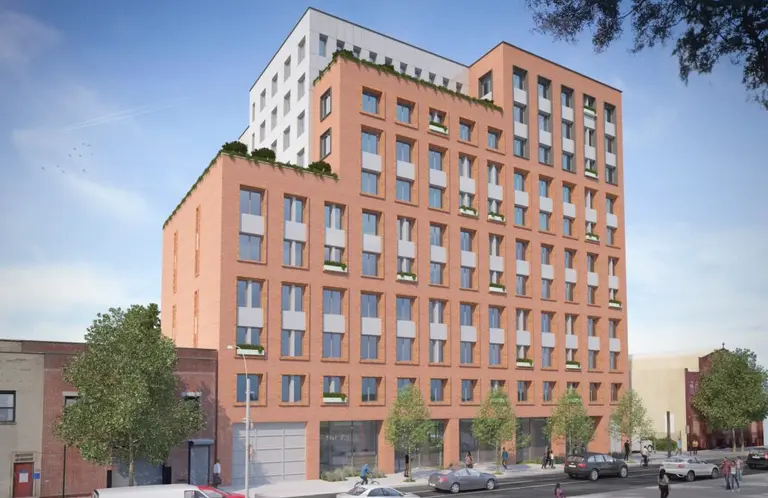
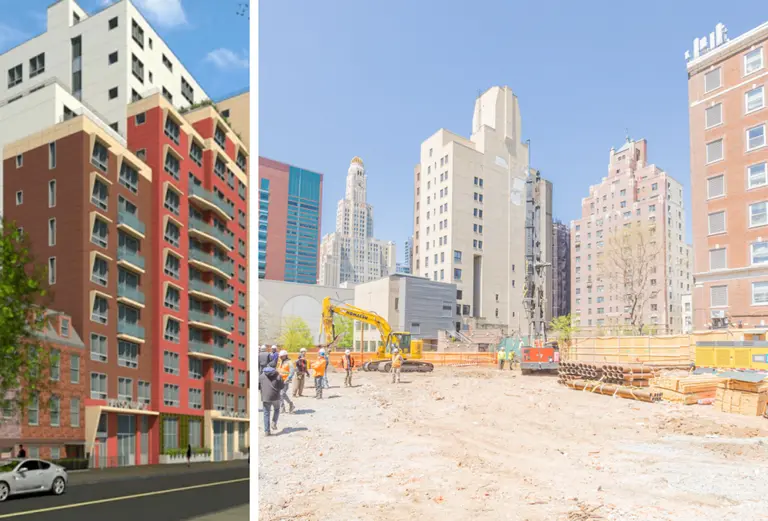
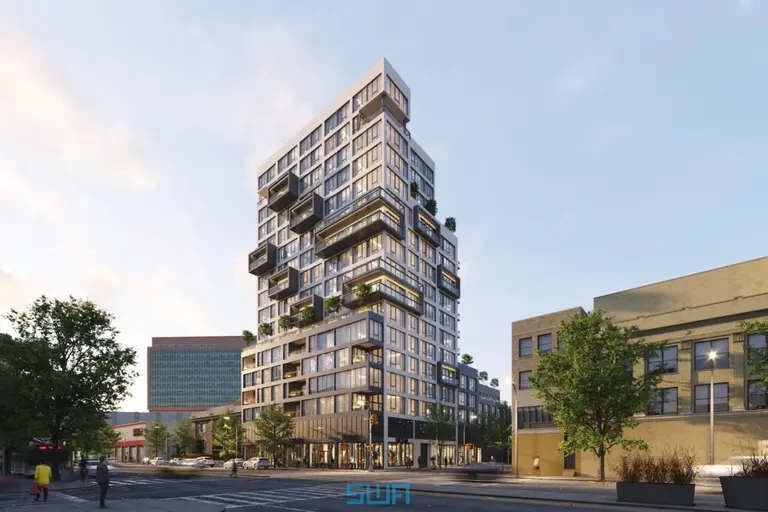
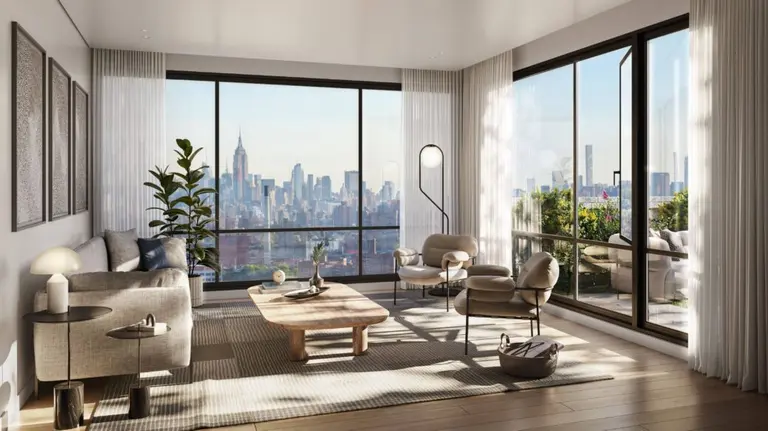





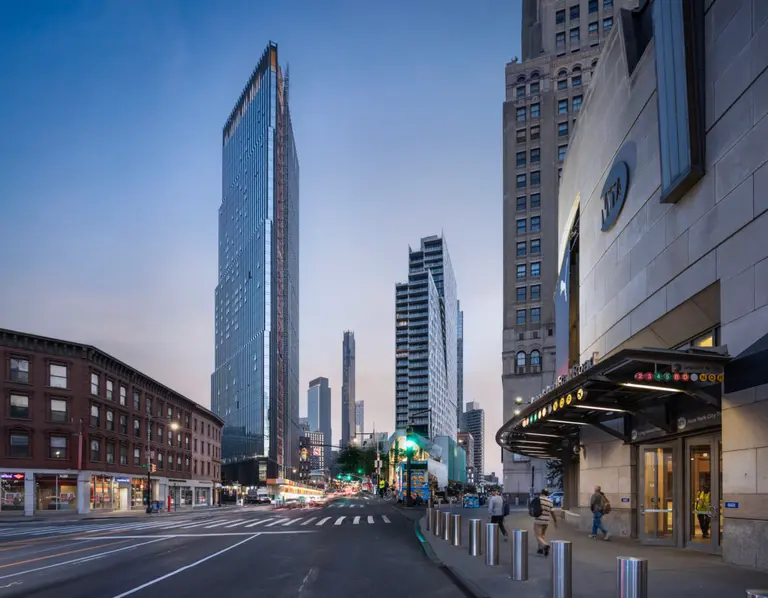
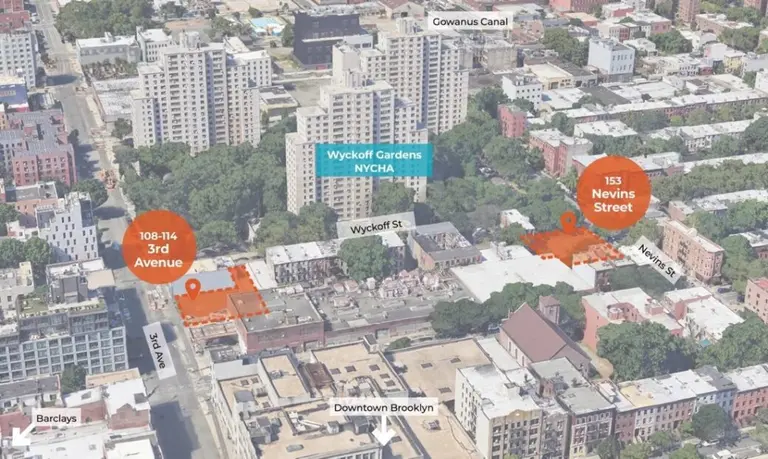
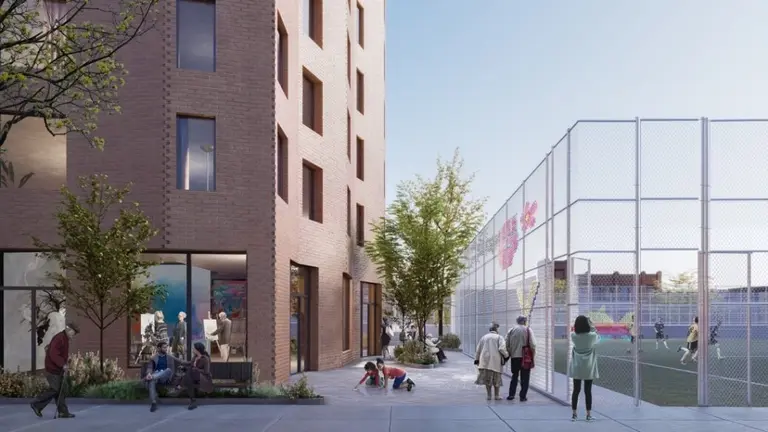
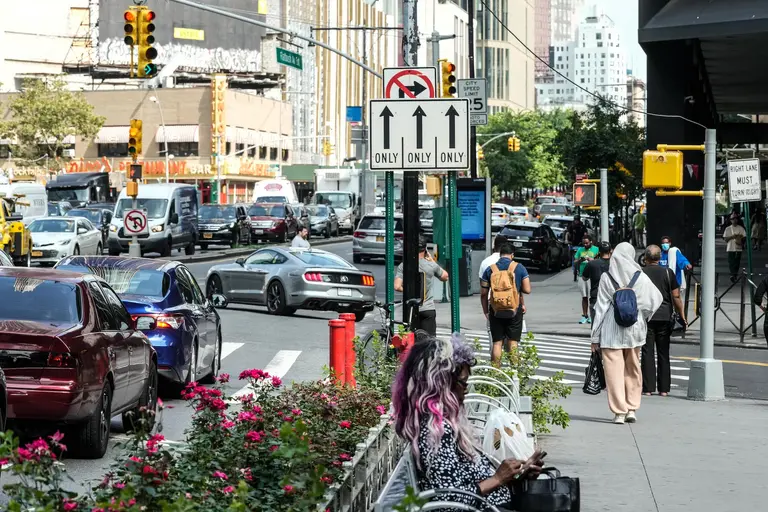
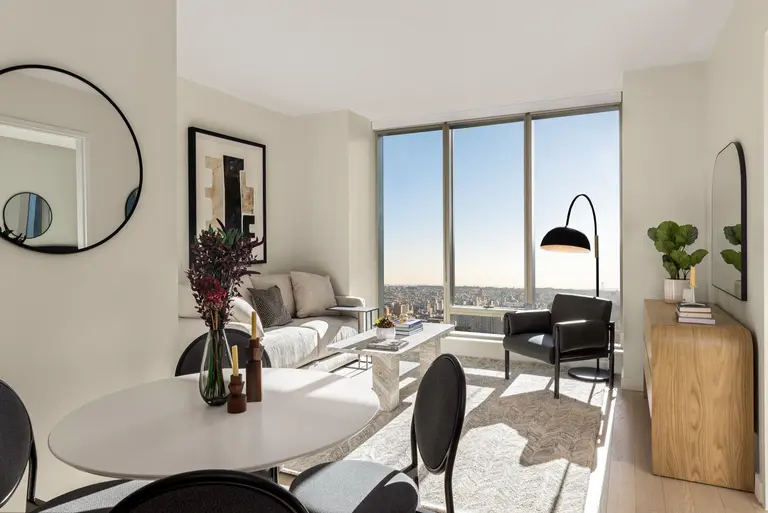
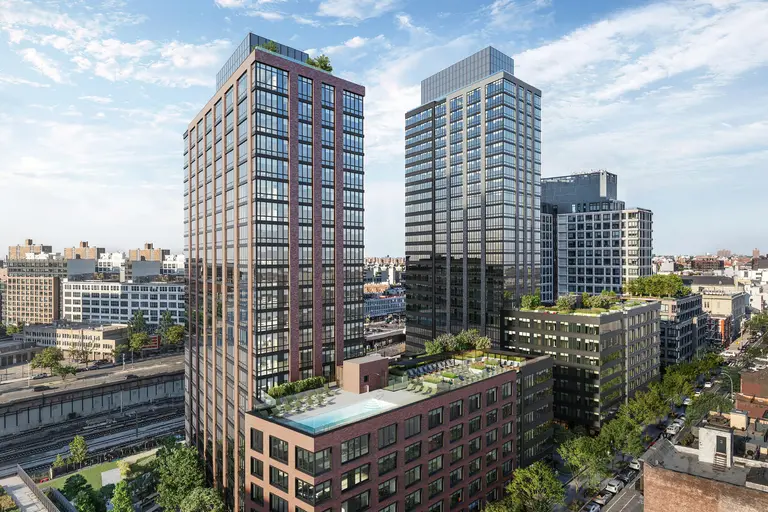












Absolutely totally and obviously predictable. People were displaced from their homes by eminent domain for what? The neighborhood was not at the time blighted, it was, in fact, making significant progress as a desirable middle class neighborhood. This is what was disrupted by what was clearly a land grab, supported by a long list of never to realized promises to make up for it. Many said then that much of what was promised would never materialize. They were apparently right.